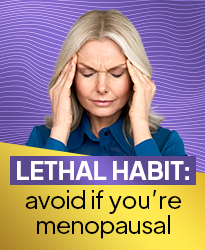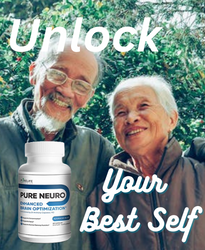Aging is an inevitable part of life, but how we age is influenced by various factors, including lifestyle, genetics, environment, and mindset. While many people over 50 are concerned with the physical changes that accompany aging, such as decreased energy levels, weight gain, and joint stiffness, healthy aging is about more than just maintaining physical appearance. It encompasses cognitive health, emotional well-being, and social connections. Vitality, both physical and mental, can be preserved and even enhanced as we age by making mindful, proactive choices.
Here, we’ll explore key strategies to support healthy aging and maintain vitality after 50, with practical tips that encompass diet, movement, mindset, and lifestyle practices.
1. Nourish Your Body with a Balanced Diet
Your dietary needs shift as you age, and a diet rich in nutrients is essential for maintaining energy, preventing disease, and supporting overall health.
Prioritize Nutrient-Dense Foods
As metabolism slows down with age, focusing on nutrient-dense foods ensures you’re getting essential vitamins and minerals without consuming excess calories. Nutrient-dense foods include:
- Fruits and Vegetables: These are packed with vitamins, minerals, fiber, and antioxidants that fight inflammation and protect against diseases like heart disease and cancer.
- Whole Grains: Opt for whole grains such as brown rice, quinoa, and oats, which provide fiber, B vitamins, and help stabilize blood sugar.
- Lean Proteins: Protein is critical for maintaining muscle mass as you age. Include plant-based proteins like lentils and beans, as well as lean animal proteins like chicken, fish, and turkey.
- Healthy Fats: Omega-3 fatty acids, found in foods like fatty fish (salmon, mackerel), flaxseeds, and walnuts, are beneficial for brain health and reducing inflammation.
Manage Caloric Intake
With age, you may require fewer calories due to a slower metabolism, but it’s essential to ensure those calories come from high-quality, nutrient-rich sources. Avoid highly processed foods, refined sugars, and unhealthy fats, which contribute to weight gain and inflammation.
Supplement Wisely
As you age, your body may become less efficient at absorbing certain nutrients. Discuss with a healthcare provider whether you need supplements such as:
- Vitamin D: Essential for bone health and immune function, especially as your skin’s ability to synthesize it from sunlight diminishes.
- Calcium: Important for bone strength, particularly post-menopause when bone density may decrease.
- Magnesium: Helps with muscle function, sleep quality, and maintaining normal blood pressure.
- B Vitamins: Especially B12, which supports energy production and brain health.
Join Our Mailing List
Register now to get our hints and tips newsletter directly to your inbox
2. Stay Physically Active with a Holistic Approach to Fitness
Exercise remains one of the most potent tools for healthy aging. It boosts your metabolism, strengthens your heart, improves bone density, and promotes mental well-being.
Strength Training for Muscle Preservation
After age 50, muscle mass naturally declines at a rate of about 1-2% per year, which can lead to frailty and reduced physical function. Regular strength training, such as weightlifting, resistance bands, or bodyweight exercises like squats and push-ups, can help preserve and even build muscle mass.
Strength training also enhances bone density, which is crucial for preventing osteoporosis and fractures as we age.
Cardiovascular Exercise for Heart Health
Aerobic exercise, or cardiovascular training, supports heart health, improves lung capacity, and boosts energy levels. Activities like brisk walking, swimming, cycling, and dancing not only keep your heart healthy but also improve endurance and mental clarity. Aim for at least 150 minutes of moderate-intensity cardio each week.
Flexibility and Balance Exercises to Prevent Falls
Maintaining flexibility and balance becomes increasingly important as you age to reduce the risk of falls and injury. Incorporating activities like yoga, Pilates, or simple stretching routines can help improve flexibility, joint mobility, and core strength. Tai chi is another excellent option, known for enhancing balance and stability, which can help prevent falls, a common concern in older adults.
Active Recovery and Rest
As you age, recovery becomes as important as exercise itself. Ensure you’re allowing your body adequate time to rest and recover between workouts. Incorporating low-impact activities such as walking, swimming, or restorative yoga can help keep you moving while giving your muscles and joints time to heal.
3. Keep Your Brain Sharp and Engaged
Cognitive decline is a significant concern for many as they age, but the brain can stay sharp and agile through mental stimulation and adopting healthy lifestyle habits.
Stay Mentally Active
Just like your body, your brain needs regular exercise. Engage in activities that challenge your mind, such as:
- Learning new skills or hobbies (e.g., learning a new language, playing a musical instrument, or painting)
- Puzzles, games, and brain teasers (e.g., crosswords, Sudoku, or chess)
- Reading and writing, which stimulate brain regions related to memory and critical thinking
- Social interactions, which can provide mental stimulation and improve emotional health
Mind-Gut Connection
The health of your gut has a profound impact on your brain health. A balanced gut microbiome supports cognitive function and emotional well-being. Focus on consuming probiotic-rich foods (like yogurt, kefir, sauerkraut, and kimchi) and fiber-rich foods to support a healthy gut.
Manage Stress and Practice Mindfulness
Chronic stress can negatively impact brain function, accelerating cognitive decline. Incorporating mindfulness practices like meditation, deep breathing exercises, or simply spending time in nature can significantly reduce stress levels and promote mental clarity.
4. Prioritize Sleep and Recovery
Sleep plays an integral role in maintaining overall health and vitality. However, many people experience changes in their sleep patterns as they age, such as waking up more frequently during the night or having difficulty falling asleep.
Aim for 7-9 Hours of Quality Sleep
Adequate sleep is necessary for muscle recovery, cognitive function, and emotional well-being. To improve sleep quality:
- Stick to a consistent sleep schedule by going to bed and waking up at the same time each day.
- Create a sleep-friendly environment: Keep your bedroom cool, dark, and quiet.
- Limit exposure to screens and bright lights before bedtime, as they can interfere with the body’s production of melatonin, a hormone that regulates sleep.
- Avoid caffeine and large meals in the hours leading up to bedtime.
Manage Sleep Disorders
Conditions like insomnia, sleep apnea, and restless legs syndrome are more common in older adults and can significantly affect sleep quality. If you struggle with sleep disorders, consult a healthcare provider for appropriate treatments and lifestyle modifications.
5. Foster Emotional Well-Being and Positive Social Connections
Emotional well-being and social connections are vital components of healthy aging. Research shows that individuals with strong social ties and a positive outlook on aging tend to live longer, healthier lives.
Stay Connected with Loved Ones
Maintaining relationships with family and friends provides emotional support, reduces feelings of loneliness, and promotes mental health. Make an effort to stay connected by:
- Engaging in regular conversations, either in person, by phone, or virtually
- Participating in community groups or clubs that align with your interests
- Volunteering or mentoring, which can give you a sense of purpose and fulfillment
Cultivate a Positive Mindset
How you perceive aging can have a significant impact on your overall health. Embrace aging as a time of growth, wisdom, and new opportunities. Instead of focusing on what you may no longer be able to do, celebrate the knowledge and experiences you’ve gained.
Practice Gratitude and Mindfulness
Cultivating gratitude has been shown to improve emotional well-being and reduce stress. Consider keeping a daily gratitude journal to focus on the positive aspects of your life. Pair this practice with mindfulness exercises like meditation or yoga, which can help manage stress, improve mood, and support mental clarity.
6. Take Preventive Health Measures
Regular health screenings and preventive measures are crucial for maintaining vitality as you age. Detecting potential health issues early can lead to better outcomes and more effective treatment.
Stay on Top of Health Screenings
Work with your healthcare provider to ensure you’re up to date with recommended screenings, such as:
- Blood pressure and cholesterol checks to monitor heart health
- Bone density tests to assess osteoporosis risk
- Mammograms and prostate exams to screen for cancer
- Eye and hearing exams to detect changes in vision or hearing
Manage Chronic Conditions
If you already have chronic conditions such as diabetes, hypertension, or arthritis, it’s essential to manage these conditions through medication, lifestyle changes, and regular check-ups. Maintaining control over these health issues can prevent complications and enhance your quality of life.
7. Embrace Eco-Friendly and Sustainable Practices
An often overlooked aspect of healthy aging is living in alignment with the environment. By adopting sustainable practices, you not only improve your health but also contribute to the well-being of the planet. Some eco-friendly tips for healthy aging include:
- Minimizing exposure to toxins by using natural, chemical-free personal care and household products.
- Supporting sustainable agriculture by choosing organic, locally sourced foods.
- Staying active in nature, which fosters physical and emotional well-being, whether it’s gardening, hiking, or simply enjoying time outdoors.
Conclusion
Aging is a journey, and the key to maintaining vitality after 50 lies in embracing a holistic approach that supports your body, mind, and spirit. By nourishing yourself with a balanced diet, staying physically active, keeping your mind sharp, prioritizing sleep, fostering emotional connections, taking preventive health measures, and adopting sustainable practices, you can age with grace, energy, and resilience.
Remember, it’s never too late to start implementing these changes. With intentional and consistent efforts, you can enjoy a vibrant, fulfilling life well into your golden age




